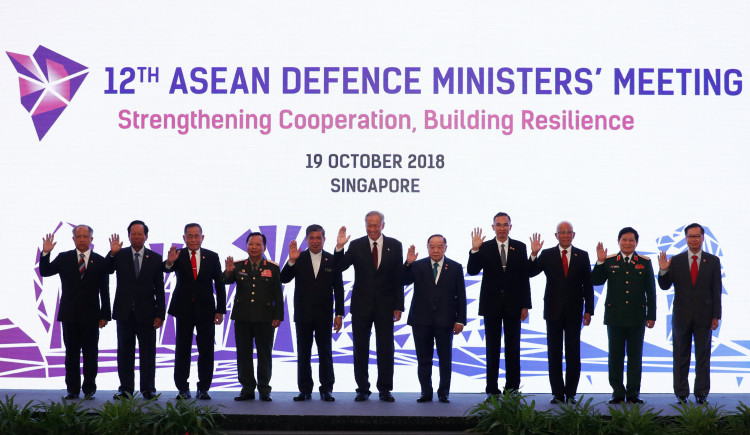ASEAN defense chiefs who met in Singapore signed the world's first multilateral air code that would help avoid accidental military confrontation in the air and the high seas. The accord was inked at a gathering held at the Shangri-La Hotel in Singapore.
The accord is particularly important in maintaining peace in the highly disputed region and one of the world's most important international shipping lanes, the South China Sea.
The region has been the subject of conflicting territorial claims among China, Brunei, Malaysia, Philippines, and Vietnam.
The multilateral air code was devised based on the Code for Unplanned Encounters at Sea which was inked in a similar gathering held in 2017. This naval accord, however, involved Australia, China, India, Japan, New Zealand, South Korea, Russia, and the United States.
It also served as a follow up in an agreement among ASEAN nations and China in August to come up with a single defining text where all discussions for a code of conduct in the South China Sea would be based from.
The multilateral air guidelines signed on Friday would require all military aircraft flying in the disputed zone to refrain from interfering with military activities that may take place simultaneously. The code allows military aircraft their "rights and freedom of navigation, overflight, and other internationally lawfully uses related to that freedom in high seas," the copy of the code stated as quoted by Channel News Asia.
The code also instructs military aircraft pilots to interact cordially and respectfully with each other in an instance that any of the parties approached one or the other to ask official identification or verify the purpose of flight.
Under the newly minted guidelines, pilots are prohibited from engaging in stunts or provocative aerial tricks that may otherwise be misinterpreted as an attack. Military pilots are also prohibited from discharging signal rockets or any military weapons in the direction of other military aircraft flying in the zone.
The code also comprised rules on counter-terrorism initiatives and oversees the establishment of a task force that would object chemical, biological, and radiological threats to each other.
In line with the newly inked naval code of conduct, China and the ASEAN nations agreed to conduct their first joint maritime exercises that are set to happen next week in the South China Sea. This drill shall promote friendlier and more respectful relations between China and other ASEAN nations.
Furthermore, the ASEAN nations have also expressed their willingness to hold maritime exercises with the United States for the first time. This historic moment is expected to happen in 2019.






